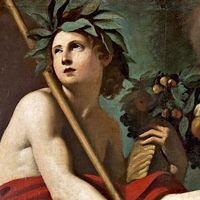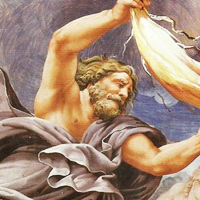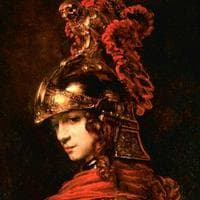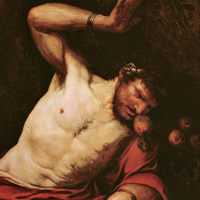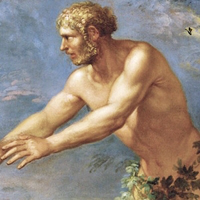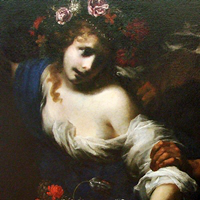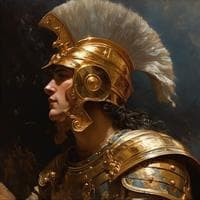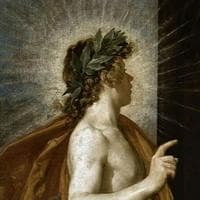Dionysus tipo de personalidade mbti
Personalidade
"Que tipo de personalidade é Dionysus? Dionysus é um tipo de personalidade ESFP em mbti, 7w8 - sx/so - 748 em enneagram, SLUAI em Big 5, ESE em sociônicos."
Something that picked my interest recently is how in Dramatis Personae - the most up-to-date information we have on E8s so far - the concept of ‘dyonisian’ was repeatedly used with the Sexual E8: > “𝐁𝐞𝐜𝐚𝐮𝐬𝐞 𝐨𝐟 𝐭𝐡𝐢𝐬 𝐜𝐡𝐚𝐫𝐚𝐜𝐭𝐞𝐫𝐢𝐬𝐭𝐢𝐜 𝐯𝐢𝐬𝐜𝐞𝐫𝐚𝐥𝐢𝐭𝐲 𝐚𝐧𝐝 𝐭𝐡𝐞 𝐬𝐡𝐚𝐦𝐞𝐥𝐞𝐬𝐬 𝐰𝐚𝐲 𝐢𝐧 𝐰𝐡𝐢𝐜𝐡 𝐭𝐡𝐞 𝐬𝐞𝐱𝐮𝐚𝐥 𝐄𝟖 𝐦𝐨𝐜𝐤𝐬 𝐜𝐨𝐧𝐯𝐞𝐧𝐭𝐢𝐨𝐧𝐚𝐥 𝐯𝐚𝐥𝐮𝐞𝐬, 𝐢𝐭 𝐜𝐚𝐧 𝐛𝐞 𝐬𝐚𝐢𝐝 𝐭𝐡𝐚𝐭 𝐢𝐭 𝐞𝐦𝐛𝐨𝐝𝐢𝐞𝐬 𝐟𝐨𝐫 𝐮𝐬 𝐭𝐡𝐞 𝐯𝐨𝐢𝐜𝐞 𝐨𝐟 𝐭𝐡𝐞 𝐃𝐢𝐨𝐧𝐲𝐬𝐢𝐚𝐧.” > “𝐓𝐡𝐞 𝐢𝐧𝐭𝐞𝐧𝐬𝐞 𝐃𝐢𝐦𝐢𝐭𝐫𝐢, 𝐚 𝐃𝐢𝐨𝐧𝐲𝐬𝐢𝐚𝐧 𝐰𝐡𝐨, 𝐣𝐮𝐬𝐭 𝐛𝐞𝐜𝐚𝐮𝐬𝐞 𝐨𝐟 𝐡𝐢𝐬 𝐥𝐮𝐬𝐭, 𝐚𝐭𝐭𝐫𝐚𝐜𝐭𝐬 𝐛𝐨𝐭𝐡 𝐭𝐡𝐞 𝐜𝐫𝐢𝐭𝐢𝐜𝐢𝐬𝐦 𝐨𝐟 𝐭𝐡𝐨𝐬𝐞 𝐚𝐫𝐨𝐮𝐧𝐝 𝐡𝐢𝐦 𝐚𝐧𝐝 𝐭𝐡𝐞 𝐬𝐲𝐦𝐩𝐚𝐭𝐡𝐲 𝐨𝐟 𝐭𝐡𝐨𝐬𝐞 𝐨𝐟 𝐮𝐬 𝐰𝐡𝐨 𝐫𝐞𝐚𝐝 𝐡𝐢𝐬 𝐬𝐭𝐨𝐫𝐲.” > “𝐀𝐥𝐫𝐞𝐚𝐝𝐲 𝐢𝐧 𝐭𝐡𝐞 𝟐𝟎𝐭𝐡 𝐜𝐞𝐧𝐭𝐮𝐫𝐲, 𝐰𝐞 𝐟𝐢𝐧𝐝 𝐚 𝐃𝐢𝐨𝐧𝐲𝐬𝐢𝐚𝐧 𝐬𝐞𝐱𝐮𝐚𝐥 𝐄𝟖 𝐢𝐧 𝐭𝐡𝐞 𝐥𝐢𝐤𝐞𝐚𝐛𝐥𝐞 𝐩𝐫𝐨𝐭𝐚𝐠𝐨𝐧𝐢𝐬𝐭 𝐨𝐟 𝐙𝐨𝐫𝐛𝐚 𝐭𝐡𝐞 𝐆𝐫𝐞𝐞𝐤” (Understand 'dionysian' as the dichotomy of dionysian vs apollonian). Due to this I started reading about Dionysus traits, and in my opinion they align very well with the Sexual E8. > Essence of Lust: Seeking intensity and pleasure in the physical realm, seeking exciting things for the senses. Dionysus being the god of wine, pleasure and wild frenzy goes perfectly with Lust. > Fun-loving and sadistic at the same time: Dionysus is consistently described as someone with a dual nature; on one side he is fun-loving, care-free and joyful - on the other, he is incredibly violent, crude and brutal. The Sexual E8 mostly displays both traits at the same time, being a charismatic and hyper-extroverted type who likes to have fun and enjoy himself, but can also be terrifying in their displays of violence. > Wildness of alcohol: As I already said he was the god of wine, and we can see the wildness and lack of filter in greek paintings: “𝐃𝐢𝐨𝐧𝐲𝐬𝐮𝐬 𝐢𝐬 𝐜𝐫𝐞𝐝𝐢𝐭𝐞𝐝 𝐰𝐢𝐭𝐡 𝐢𝐧𝐭𝐫𝐨𝐝𝐮𝐜𝐢𝐧𝐠 𝐯𝐢𝐭𝐢𝐜𝐮𝐥𝐭𝐮𝐫𝐞 𝐭𝐨 𝐆𝐫𝐞𝐞𝐜𝐞," 𝐌𝐚𝐫𝐭𝐢𝐧 𝐬𝐚𝐲𝐬. "𝐀𝐧𝐜𝐢𝐞𝐧𝐭 𝐆𝐫𝐞𝐞𝐤𝐬 𝐤𝐧𝐞𝐰 𝐚𝐛𝐨𝐮𝐭, 𝐰𝐫𝐨𝐭𝐞 𝐚𝐛𝐨𝐮𝐭, 𝐚𝐧𝐝 𝐝𝐢𝐝 𝐢𝐧𝐧𝐮𝐦𝐞𝐫𝐚𝐛𝐥𝐞 𝐯𝐚𝐬𝐞 𝐩𝐚𝐢𝐧𝐭𝐢𝐧𝐠𝐬 𝐨𝐟 𝐚𝐥𝐥 𝐨𝐟 𝐭𝐡𝐨𝐬𝐞 𝐬𝐢𝐭𝐮𝐚𝐭𝐢𝐨𝐧𝐬. 𝐈𝐧 𝐟𝐚𝐜𝐭, 𝐰𝐞 𝐬𝐭𝐢𝐥𝐥 𝐡𝐚𝐯𝐞 𝐩𝐨𝐭𝐬 𝐨𝐟 𝐭𝐡𝐞 𝐬𝐨𝐫𝐭 𝐮𝐬𝐞𝐝 𝐢𝐧 𝐝𝐫𝐢𝐧𝐤𝐢𝐧𝐠 𝐩𝐚𝐫𝐭𝐢𝐞𝐬 ('𝐬𝐲𝐦𝐩𝐨𝐬𝐢𝐚') 𝐭𝐡𝐚𝐭 𝐬𝐡𝐨𝐰 𝐰𝐢𝐥𝐝 𝐝𝐚𝐧𝐜𝐢𝐧𝐠, 𝐞𝐧𝐞𝐫𝐠𝐞𝐭𝐢𝐜 𝐜𝐞𝐥𝐞𝐛𝐫𝐚𝐭𝐢𝐨𝐧, 𝐚𝐧𝐝 𝐞𝐯𝐞𝐧 𝐲𝐨𝐮𝐧𝐠 𝐠𝐮𝐲𝐬 𝐯𝐨𝐦𝐢𝐭𝐢𝐧𝐠 𝐚𝐬 𝐬𝐨𝐦𝐞𝐨𝐧𝐞 𝐡𝐨𝐥𝐝𝐬 𝐭𝐡𝐞𝐢𝐫 𝐡𝐞𝐚𝐝.” We can see in those paintings the love of pleasure, of excess and disrespect for what is socially/morally acceptable in favor of hedonism. > Fascinating and hypnotic qualities: Sexual E8 is described as fascinating, the histrionic E8 with “more colors in their feathers” - just as Dionysus is described as fascinating, seductive and with the power of making people lose themselves in the pleasure, sometimes to the points of madness. > “𝐈𝐧 𝐭𝐡𝐞 𝐝𝐫𝐚𝐦𝐚, 𝐭𝐡𝐞 𝐲𝐨𝐮𝐧𝐠 𝐤𝐢𝐧𝐠 𝐨𝐟 𝐓𝐡𝐞𝐛𝐞𝐬 (𝐧𝐚𝐦𝐞𝐝 𝐏𝐞𝐧𝐭𝐡𝐞𝐮𝐬) 𝐢𝐧 𝐆𝐫𝐞𝐞𝐜𝐞 𝐟𝐞𝐞𝐥𝐬 𝐭𝐡𝐫𝐞𝐚𝐭𝐞𝐧𝐞𝐝 𝐛𝐲 𝐚 𝐦𝐲𝐬𝐭𝐞𝐫𝐢𝐨𝐮𝐬 𝐯𝐢𝐬𝐢𝐭𝐨𝐫 — 𝐃𝐢𝐨𝐧𝐲𝐬𝐮𝐬 𝐢𝐧 𝐝𝐢𝐬𝐠𝐮𝐢𝐬𝐞 — 𝐰𝐡𝐨 𝐡𝐚𝐬 𝐜𝐨𝐦𝐞 𝐛𝐚𝐜𝐤 𝐭𝐨 𝐡𝐢𝐬 𝐨𝐰𝐧 𝐛𝐢𝐫𝐭𝐡𝐩𝐥𝐚𝐜𝐞. 𝐇𝐞 𝐭𝐡𝐢𝐧𝐤𝐬 𝐭𝐡𝐞 𝐬𝐭𝐫𝐚𝐧𝐠𝐞𝐫 𝐢𝐬 𝐮𝐩 𝐭𝐨 𝐧𝐨 𝐠𝐨𝐨𝐝, 𝐬𝐞𝐝𝐮𝐜𝐢𝐧𝐠 𝐰𝐨𝐦𝐞𝐧. 𝐁𝐮𝐭 𝐚𝐭 𝐭𝐡𝐞 𝐬𝐚𝐦𝐞 𝐭𝐢𝐦𝐞 𝐡𝐞'𝐬 𝐟𝐚𝐬𝐜𝐢𝐧𝐚𝐭𝐞𝐝 𝐛𝐲 𝐭𝐡𝐞 𝐧𝐞𝐰 𝐰𝐨𝐫𝐬𝐡𝐢𝐩 𝐚𝐧𝐝 𝐬𝐩𝐢𝐞𝐬 𝐨𝐧 𝐭𝐡𝐞 𝐞𝐜𝐬𝐭𝐚𝐭𝐢𝐜 𝐰𝐨𝐦𝐞𝐧 𝐚𝐬 𝐭𝐡𝐞𝐲 𝐜𝐞𝐥𝐞𝐛𝐫𝐚𝐭𝐞 𝐭𝐡𝐞 𝐠𝐨𝐝, 𝐝𝐚𝐧𝐜𝐢𝐧𝐠 𝐚𝐧𝐝 𝐝𝐫𝐢𝐧𝐤𝐢𝐧𝐠 𝐮𝐩 𝐨𝐧 𝐭𝐡𝐞 𝐦𝐨𝐮𝐧𝐭𝐚𝐢𝐧. 𝐀𝐥𝐥 𝐨𝐟 𝐚 𝐬𝐮𝐝𝐝𝐞𝐧, 𝐡𝐞 𝐢𝐬 𝐜𝐚𝐮𝐠𝐡𝐭 — 𝐭𝐡𝐞 𝐰𝐨𝐦𝐞𝐧 𝐚𝐫𝐞 𝐝𝐫𝐢𝐯𝐞𝐧 𝐭𝐨 𝐚 𝐟𝐫𝐞𝐧𝐳𝐲, 𝐚𝐧𝐝 𝐭𝐡𝐞𝐲 𝐭𝐮𝐫𝐧 𝐟𝐫𝐨𝐦 𝐭𝐞𝐚𝐫𝐢𝐧𝐠 𝐚𝐩𝐚𝐫𝐭 𝐬𝐦𝐚𝐥𝐥 𝐚𝐧𝐢𝐦𝐚𝐥𝐬 𝐭𝐨 𝐚𝐜𝐭𝐮𝐚𝐥𝐥𝐲 𝐡𝐮𝐧𝐭𝐢𝐧𝐠 𝐏𝐞𝐧𝐭𝐡𝐞𝐮𝐬. 𝐓𝐡𝐞𝐲 𝐭𝐞𝐚𝐫 𝐡𝐢𝐦 𝐥𝐢𝐦𝐛 𝐟𝐫𝐨𝐦 𝐥𝐢𝐦𝐛 𝐚𝐧𝐝 𝐡𝐢𝐬 𝐦𝐨𝐭𝐡𝐞𝐫 𝐢𝐧 𝐚 𝐃𝐢𝐨𝐧𝐲𝐬𝐮𝐬-𝐢𝐧𝐝𝐮𝐜𝐞𝐝 𝐦𝐚𝐝𝐧𝐞𝐬𝐬 𝐜𝐚𝐫𝐫𝐢𝐞𝐬 𝐡𝐢𝐬 𝐡𝐞𝐚𝐝 𝐨𝐟𝐟, 𝐭𝐡𝐢𝐧𝐤𝐢𝐧𝐠 𝐬𝐡𝐞 𝐡𝐚𝐬 𝐬𝐥𝐚𝐢𝐧 𝐚 𝐥𝐢𝐨𝐧. 𝐒𝐨 𝐏𝐞𝐧𝐭𝐡𝐞𝐮𝐬 𝐚𝐧𝐝 𝐭𝐡𝐞 𝐓𝐡𝐞𝐛𝐚𝐧 𝐚𝐫𝐞 𝐩𝐮𝐧𝐢𝐬𝐡𝐞𝐝 𝐟𝐨𝐫 𝐡𝐚𝐯𝐢𝐧𝐠 𝐫𝐞𝐬𝐢𝐬𝐭𝐞𝐝 𝐭𝐡𝐞 𝐢𝐝𝐞𝐚 𝐭𝐡𝐚𝐭 𝐭𝐡𝐞 𝐥𝐨𝐜𝐚𝐥 𝐛𝐨𝐲 𝐰𝐚𝐬 𝐫𝐞𝐚𝐥𝐥𝐲 𝐚 𝐩𝐨𝐰𝐞𝐫𝐟𝐮𝐥 𝐠𝐨𝐝.” While we still don’t have Lujuria, I think the representation of this god leans way more towards Sexual E8.
Biografia
The god of wine, mirth, and madness, Dionysus (pronounced dye-oh-nye-sus) is the son of Zeus and the mortal Semele. He was still in his mother's womb when she witnessed the Thunderer in his awesome radiance and was destroyed. Zeus took the baby from her body and stitched it into his own thigh, and when it was ready to be born, it stepped forth fully and perfectly formed. Hera, jealous of her husband's dalliances, made Dionysus crazy early in his life, and he wandered the land learning the ways of the vine, and the ways of madness. In his journeys, he acquired a retinue of centaurs, satyrs, and cultists. He appears as a young man carrying an amphora of wine, a lyre, and a thyrsus. Like Demeter, he is an agricultural god with power over fertility of both land and creatures, but his portfolio is limited to vines, wine, and wine's influence on mortals. Dionysus is called Women-Maddener because of his ability to inspire frenzy in his worshipers (particularly women). As the god of wine, Dionysus has a dual nature. On one hand, he is the embodiment of joy, pleasure, and camaraderie. On the other, he embodies brutality, idiocy, and madness. His twin nature is a reflection of the dual properties of wine in the eyes of the Greeks: imbibed in moderation, it brings pleasure and comfort, but in excess, it brings nothing but depraved misery. Today, Dionysus is the god of drinkers, to be sure. His entire portfolio's dedicated to the divine madness of the grape, to the revelry in the enjoyment of drink. His followers aren't gentle tipsters, either. Some bashers get contemplative; Dionysus' faithful get downright nasty. When they go too far in their celebrations, they lose all rational thought and follow their instincts blindly. People often die from these frenzies.
